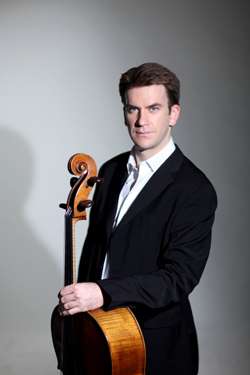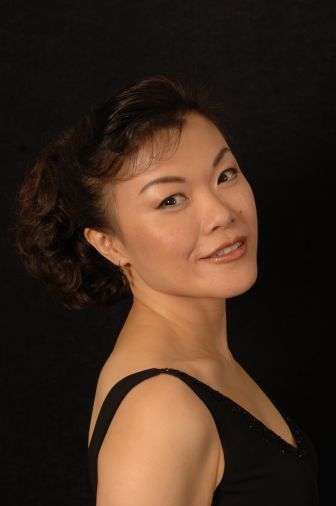|
Back
Hoedown From Uzbekistan New York
Grace Rainey Rogers Auditoirum, Metropolitan Museum of Art
03/29/2013 -
Alfred Schnittke: Musica Nostalgica for Cello and Piano
Dmitri Yanov-Yanovsky: Serenade for String Trio (World Premiere)
Dmitri Shostakovich: Seven Romances on Poems by Alexander Blok, Opus 127
Ludwig van Beethoven: Piano Quartet in E flat Major, Opus 16
Hyunah Yu (Soprano), Jeewon Park (Piano), Colin Jacobsen (Violin), Nicholas Cords (Viola), Edward Arron (Cello, Artistic Director) 
E. Arron (© Courtesy of the Artist)
Concerts at the Metropolitan Museum of Art–this is the 10th season–are inevitably luminous, no matter who the musicians may be. The Christmas season turns a section devoted to Medieval paintings and icons into a sacred alter. The grand concerts in a reconstructed Egyptian temple is a sacerdotal experience, where one expects the Luxor magicians and priests to make a “guest” procession.
Most of the concerts take place in the Grace Rainey Rogers Auditorium, set amidst less grandiose (but equally impressive) Egyptian statuary. The musical offerings last night, though mainly from Russia, were equally impressive.
Edward Arron, the Ohio-born cellist, was also the interlocutor, though he needed to introduce only one unknown composer, Dmitri-Yanov Yanovsky, an Uzbek writer discovered while Arron (and others in the ensemble) were performing with Yo-Yo Ma’s Silk Road ensemble.
Yanov-Yanowsky’s Serenade, commissioned by the Metropolitan Museum Artists in Concert, had a single striking idiosyncrasy. Not the delicious light-hearted variations on the tune, with its crazy pizzicati, and interchanges between the three players. But because that tune resembled–was almost an exact replica of–an American hoedown, a bumptious Turkey In The Straw clone. Nothing sounded either Uzbek or Russian, but I suppose some parts of Uzbekistan share those rhythms and melodies, and more power to them.
That was preceded by another short piece, which Mr. Arron himself had helped initiate for a posthumous publication. Alfred Schnittke, who could take variegated old forms and genres, twisting them gently to his own purposes, here had a Baroque Bach-style cello/piano work. Or so it seemed when I previewed it on YouTube. But Musica Nostalgica, when performed by Mr. Arron and that wonderful pianist Jeewon Park, was given more retard, more pauses. The result was sometimes Bachian, but more often verging on the Romantic. Either way, Schnittke’s trifle was, engaging enough.

H. Yu (© Courtesy of the Artist)
The centerpiece of the evening was Dmitri Shostakovich’s austere, almost hermetic work for solo instruments and soprano, based on seven poems by Alexander Blok. Rarely does the soloist sing with more than a single instrument, and while the burden falls on her, it is the virtually naked Shostakovich composing a work entirely for his own inner voice.
Hyunah Yu has a light luminous voice which is made for Mozart (her Zaide was, reportedly, without equal), and she hit the right musical notes for this so arduous work. But rarely did her voice achieve the apocalyptic gloom of The Prophet Bird, speaking of the Tatar “bloody executions and quake and famine...” The third setting, We Were Together had the simple line which Ms. Yu could sing with simple beauty. In The Storm, Shostakovich is agonizing in his emotions, and Ms Yu attempted those emotions, as she did in the final untitled Blok poem which the composer called Music.
Yet these seven songs are of such intensity, such majesty and singularity, one needed a singer who doesn’t try so hard and whose emotions come from within. It was excellent singing, but the Blok Seven Romances requires a stifled poignancy, passion which I didn’t hear last night.

J. Park (© www.jeewonpark.com)
The final Beethoven early Piano Quartet was a triumph for all four musicians. Yet it was pianist Park who trumped the other three players. Beethoven, who I suppose, played the original piano part, gave himself the most difficult runs and solos, and Ms. Park’s performance was more than adept: it was ravishing in execution, radiant in timbre.
Harry Rolnick
|